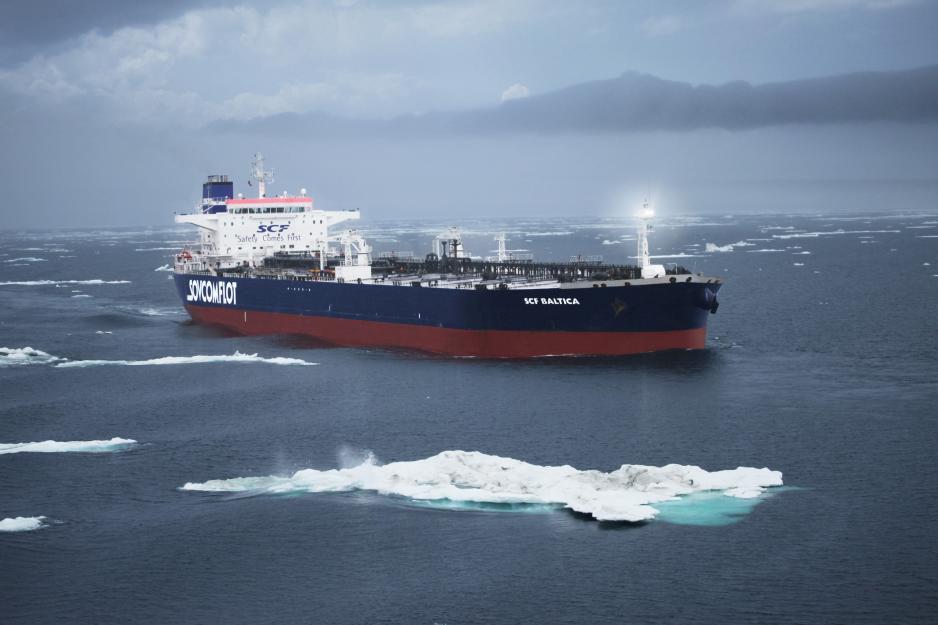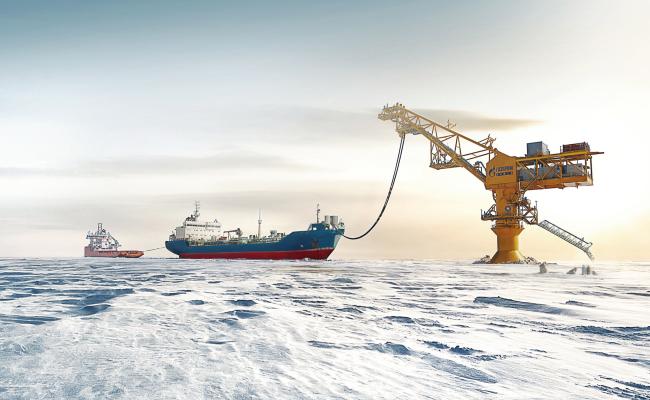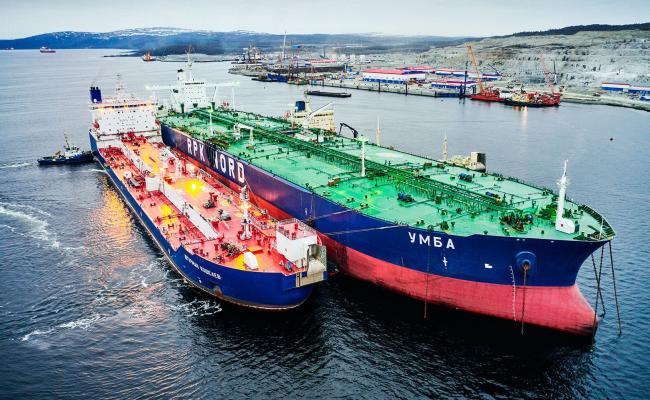Russia Drawing Up Plans to Send Arctic Crude Oil on Non-ice Class Tankers to Asia

The Arc5 oil tanker SCF Baltica sailing in dispersed ice in the Laptev Sea. (Source: OAO Sovcomflot)
Environmental stakes in the Arctic could reach new highs this summer. Rosatom is discussing the possibility of using non-ice class oil tankers along the Northern Sea Route this summer to deliver Arctic crude oil to Asia.
In an unprecedented development, Russia’s operator of nuclear icebreakers, Rosatom, is in discussions with Arctic oil companies Lukoil and Gazprom Neft to send crude oil in conventional, non-ice class tankers along the Northern Sea Route (NSR) this summer.
These voyages would be high-risk, say shipping experts.
EU sanctions have shut the door on the import of Russian Arctic oil. Since sanctions took effect in December 2022 Russia has diverted crude oil produced at its three Arctic projects, Prirazlomnoye, Novy Port, and Varandey to buyers in Asia via the Suez Canal.
However, the lengthy route – compared to the relatively short voyage to western Europe – challenges the economics of the projects.
The crisis with Ukraine may lead to low cost maritime traffic to the detriment of the environment.
For the summer and fall of 2023 Russia is looking to send Arctic crude oil to Asia via the NSR, rather than circumnavigating all of Europe and passing through the Suez Canal.
“With the Western sanctions on crude oil, it is certain that deliveries to the West are less frequent, and more expensive if they have to go via Suez to China. It is therefore not surprising that companies want to export their oil via the NSR this summer,” says Hervé Baudu, Chief Professor of Maritime Education at the French Maritime Academy (ENSM)
Conventional oil tankers on the NSR
Russia conducted a trial voyage late last year sending a shipment of oil to China via the NSR.
The voyage was only the second time that crude oil was shipped through the Arctic in an easterly direction all the way to Asia. The tanker Vasily Dinkov, protected by an Arc6 ice-class, traveled from near Murmansk to Rizhao during October and November 2022.
The difference to such voyages in the past, however, is that Russia is now looking to use tankers without ice protection. Russia’s existing ice-class tankers are not large enough to routinely and economically deliver crude oil over long distances to Asia.
Will the tankers comply with the Polar Code? This is doubtful.
“We have held preliminary negotiations on sending part of the crude oil cargo flows to the east. We have offered Lukoil and Gazprom Neft the use of conventional tankers with guaranteed safety, using our icebreakers in the summer-autumn navigation," said Sergei Chemko, project manager for the development of the Arctic at Rosatom, during a Federation Council meeting.
According to internal calculations at Rosatom, up to 500,000 tons of crude oil could pass along the NSR to Asia during the late summer and early fall when ice extent is lowest.
Transporting oil through ice-infested waters is not unprecedented and occurs regularly in the Baltic Sea. But the Arctic’s remoteness and cold water temperature represent a significant risk.
“However, the risks are high because a collision with a piece of pack ice could lead to a leak of crude oil and therefore to pollution in cold waters that are not well known to be treated in cold seas,” warns Baudu.
“The means to fight against an oil spill are non-existent or too weak compared to the risks.”
Inadvertent impact of sanctions
Russia’s plans for greater flow of Arctic crude oil to Asia is a direct result of western sanctions, experts confirm. And Russia recently engaged in the buying of more than 100 oil tankers in an effort to circumvent western sanctions.
These purchases are also indicative of more upcoming activity on the NSR.
“From an environmental point of view, it is worrying because we risk seeing tankers of very average quality being chartered. Will the tankers comply with the Polar Code? This is doubtful. The crisis with Ukraine may lead to low cost maritime traffic to the detriment of the environment,” Baudu concludes.



